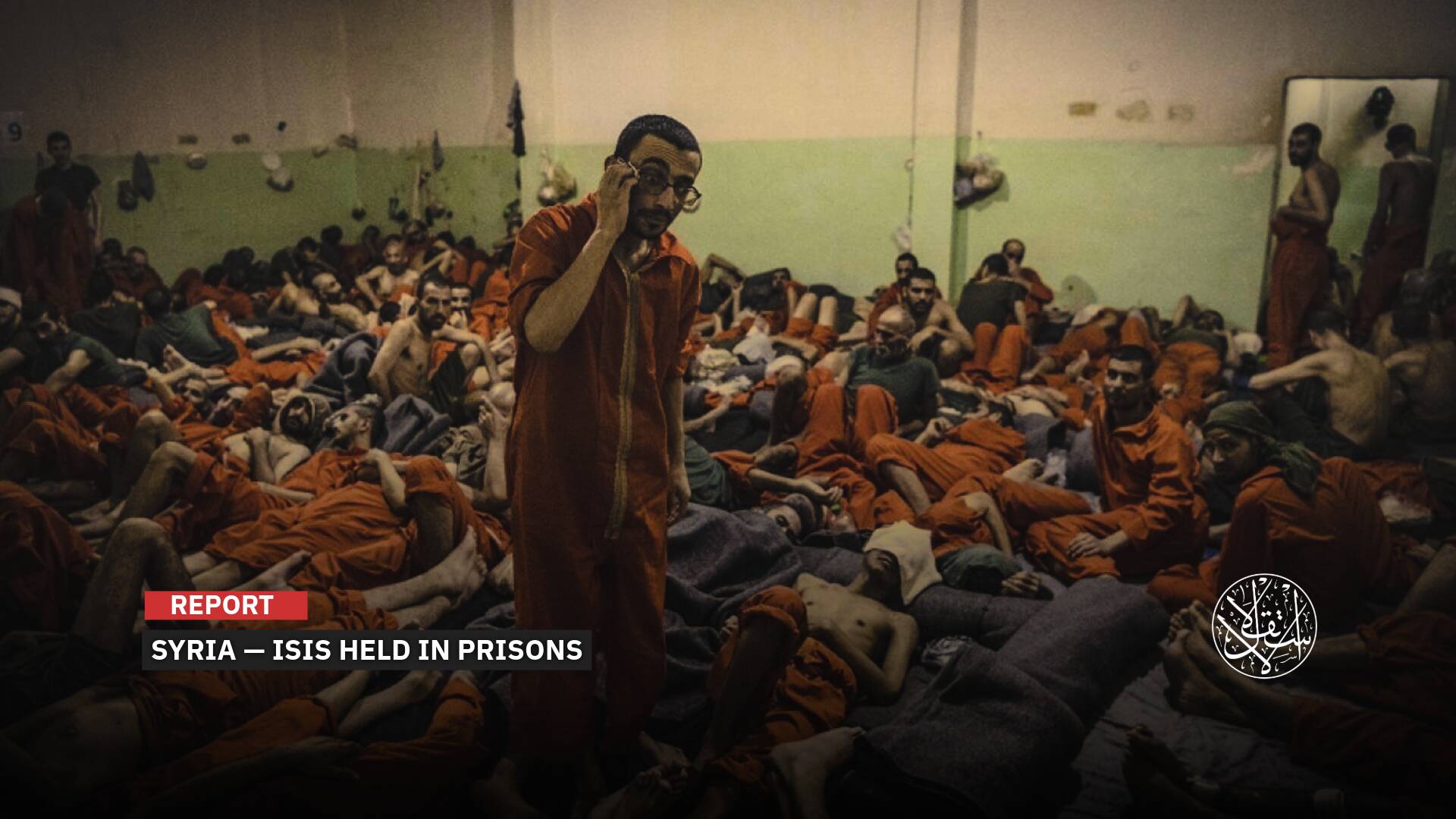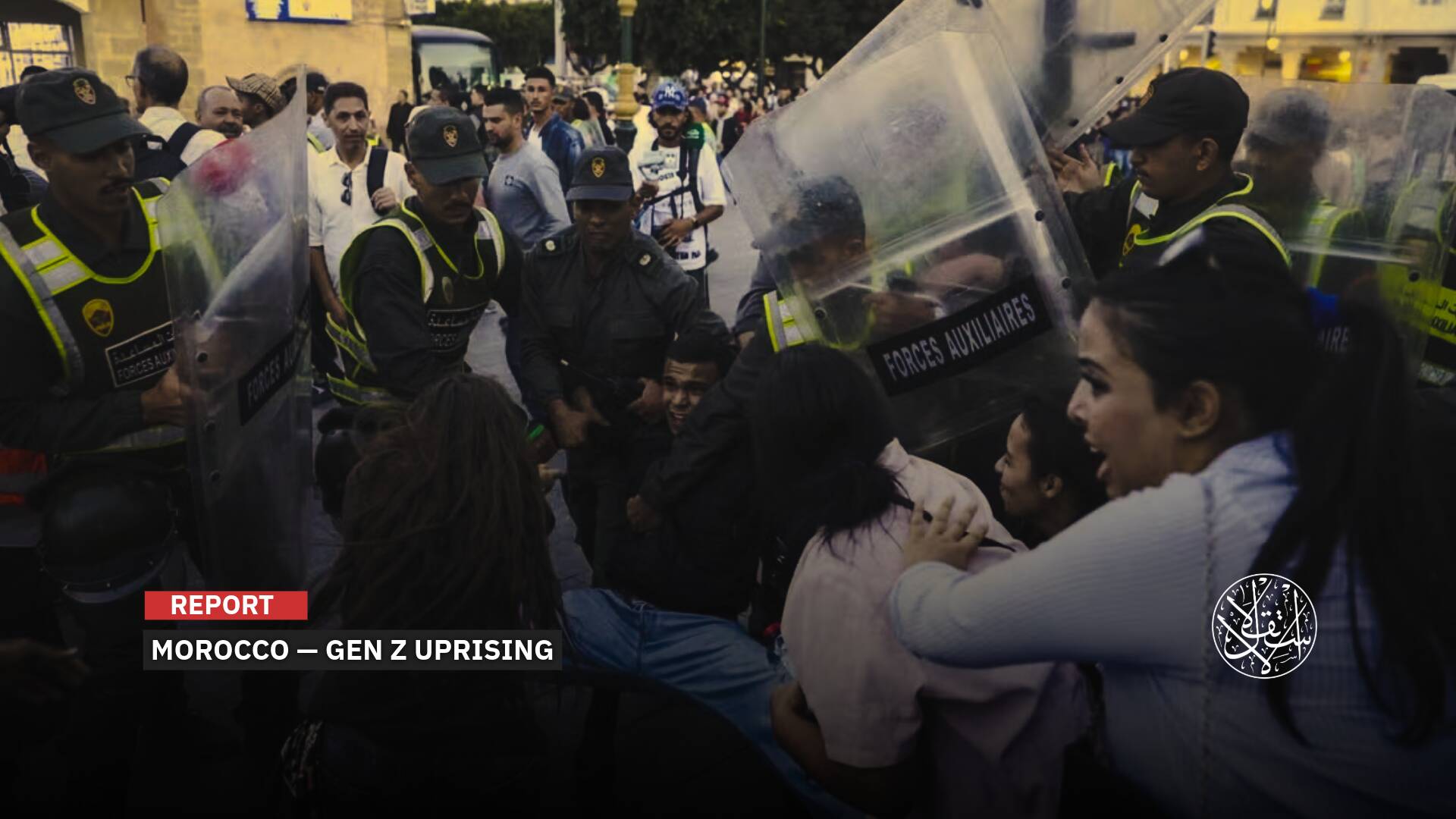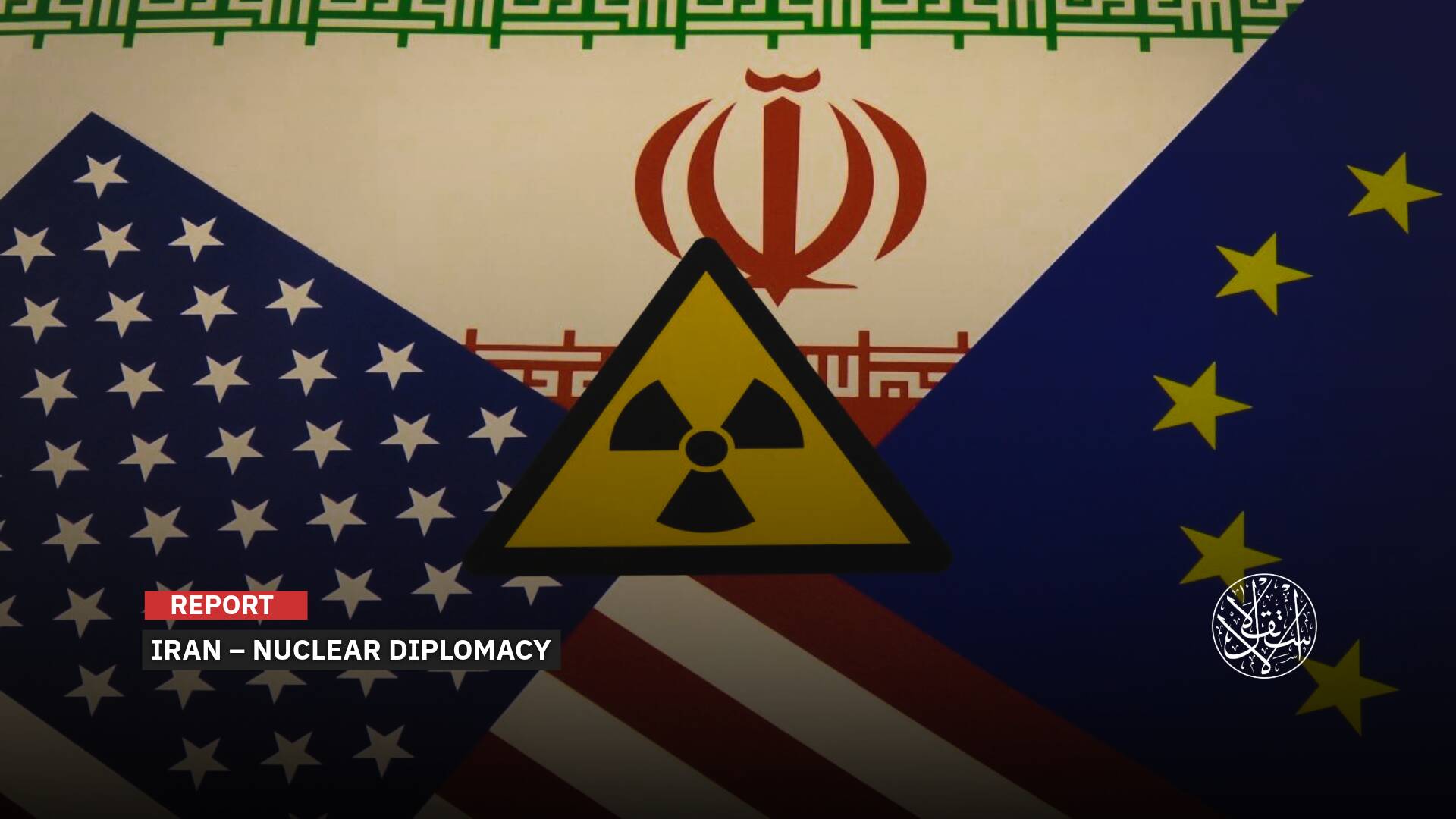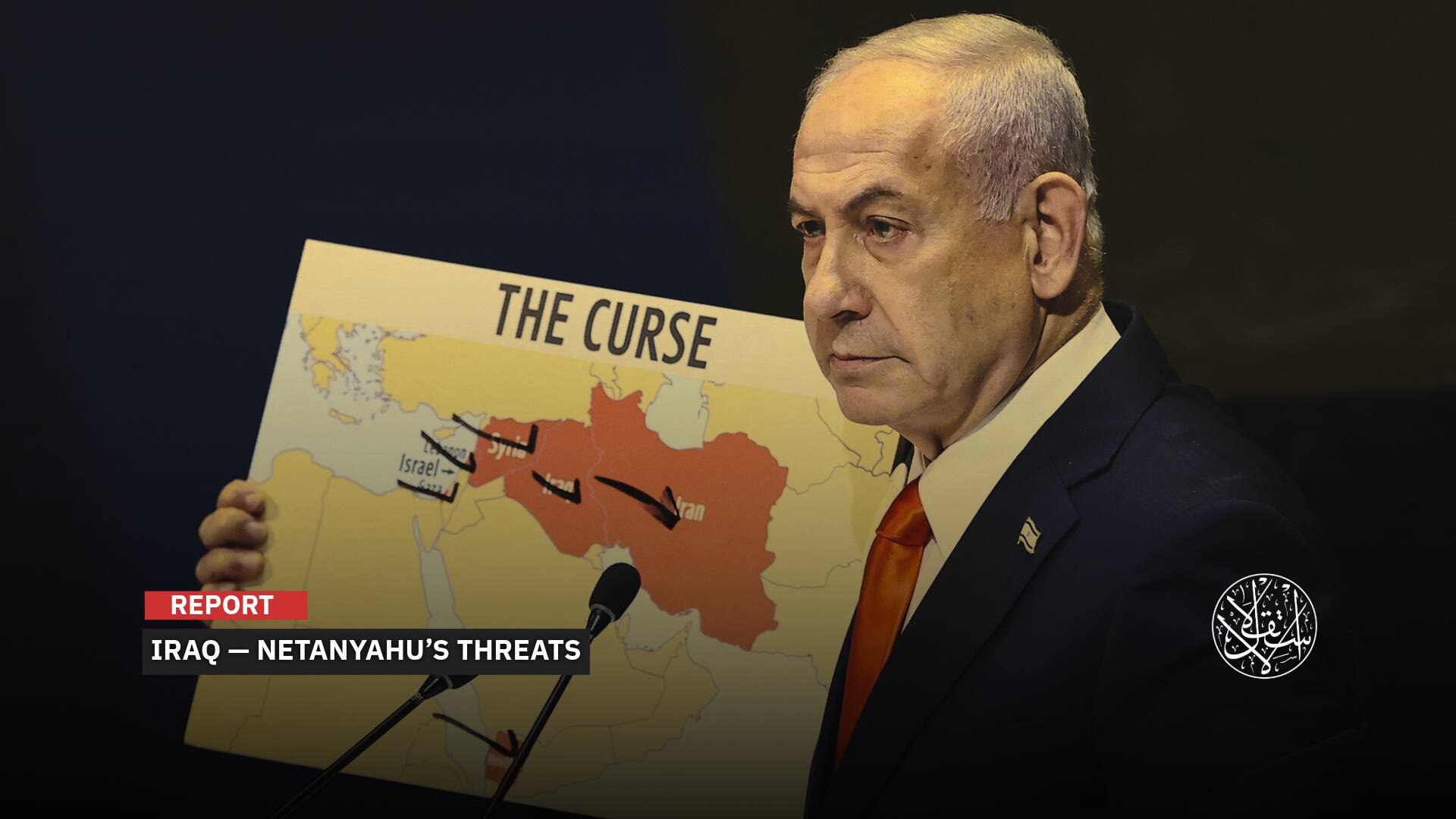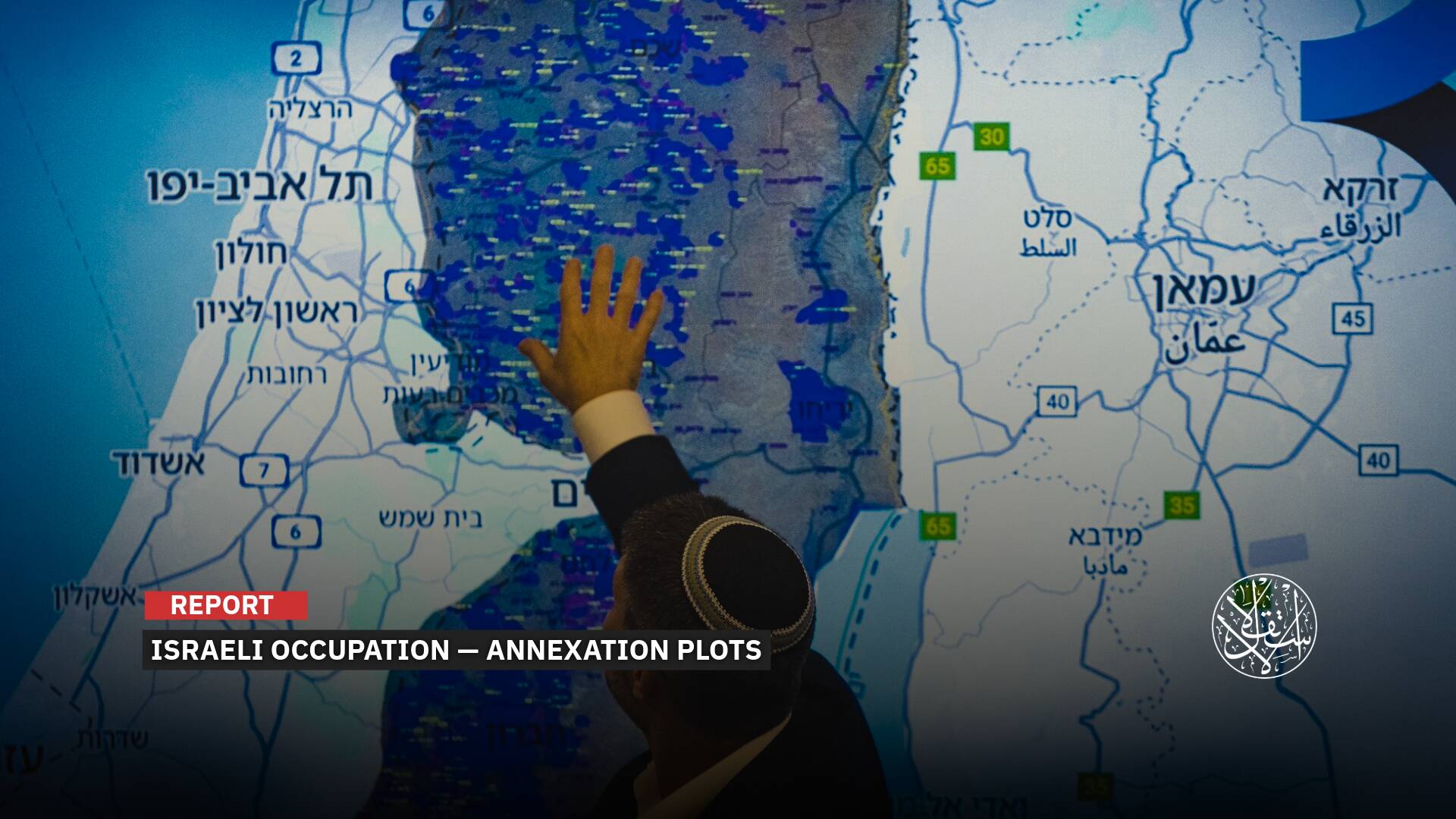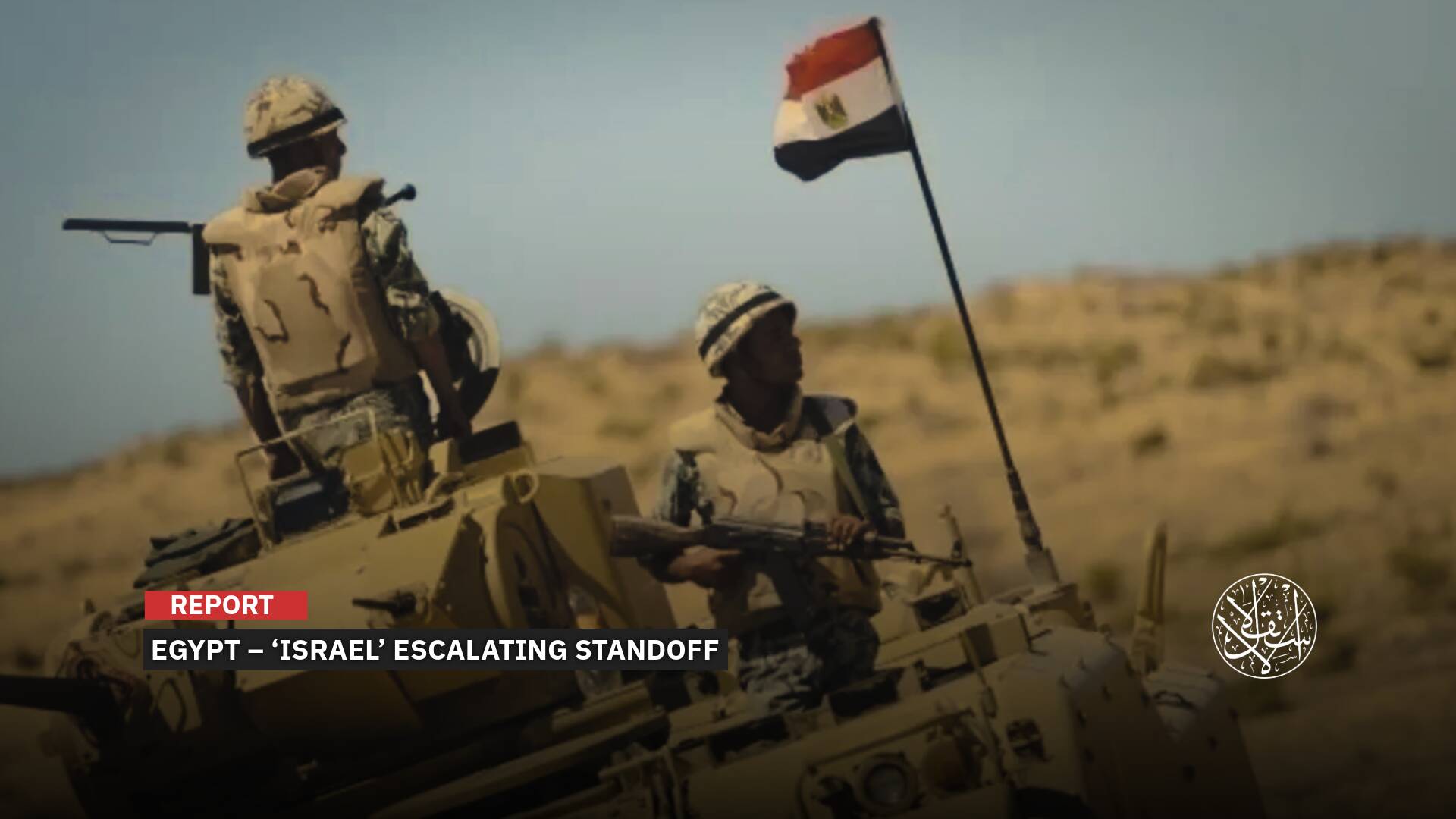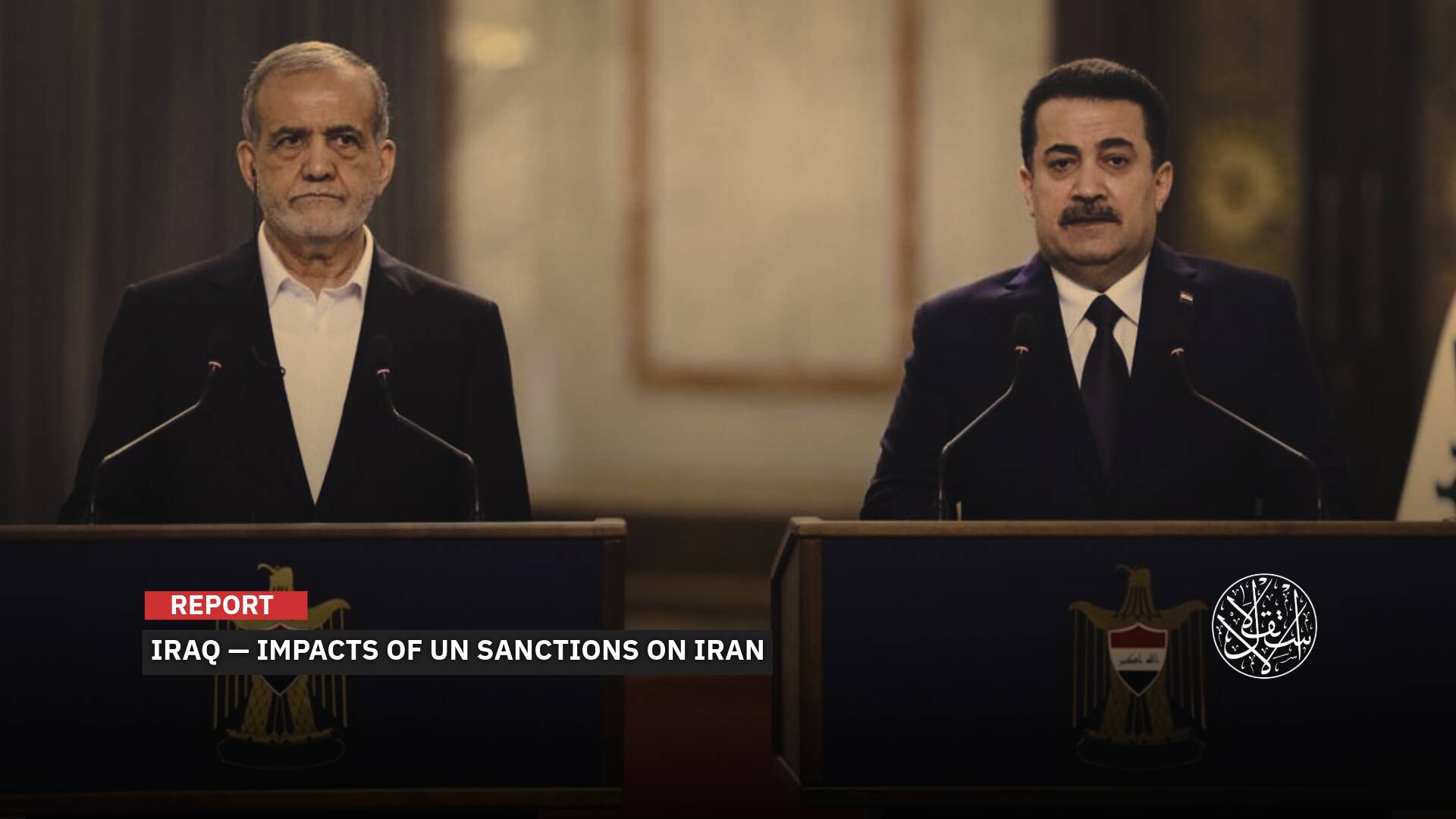American Security Firms in Gaza: A Stopgap or New Form of Occupation?

Deploying mercenaries to create a U.S. foothold in Gaza under international cover.
In October 2003, three U.S. Embassy security guards were killed when a car bomb hit their convoy in Gaza. The diplomatic convoy, which included CIA officials and representatives from the office of U.S. Middle East envoy John Wolf, was traveling near the Erez Crossing when the explosion occurred. Israeli officials said at the time that Hamas was behind the attack.
Subsequent reports suggested that the targeting of U.S. intelligence officials aimed to derail plans to reshape Gaza into a “second West Bank” under the control of former Palestinian security chief Mohammed Dahlan, in coordination with “Israel.”
Signs of this strategy emerged in 2004 with the assassinations of three key figures: Hamas founder Sheikh Ahmed Yassin on March 22, senior Hamas leader Abdel Aziz al-Rantisi on April 17, and Palestinian Authority President Yasser Arafat on November 11, allegedly via poisoning.
This was followed by the Israeli Occupation’s sudden withdrawal from Gaza in August 2005, ceding control to the Palestinian Authority under Mahmoud Abbas and setting the stage for Dahlan's influence.
However, in 2007, Hamas took full control of Gaza, ousting PA forces aligned with “Israel” and the U.S. Since then, American involvement in the enclave has been severely restricted.
“There have been significant limitations on any U.S. government or U.S. government-backed activity in Gaza due to security reasons,” as per Axios.
For years, U.S. officials have avoided visiting Gaza, citing security risks and a long-standing policy of no engagement with Hamas. The only exception came in 2024, when U.S. military personnel briefly operated a floating pier off Gaza’s coast “to facilitate aid deliveries”—an effort that ultimately failed under Israeli military protection.
Now, with reports of U.S. private military contractors being deployed to Gaza, questions arise about their true purpose and how they fit into postwar planning. Are they merely overseeing operations along the Netzarim Corridor, or will they remain as part of a broader security framework?
Will these contractors leave, or will they stay? And if the “plan” collapses, does Gaza risk another war—this time between Hamas and American mercenaries, echoing the deadly events of 2003?
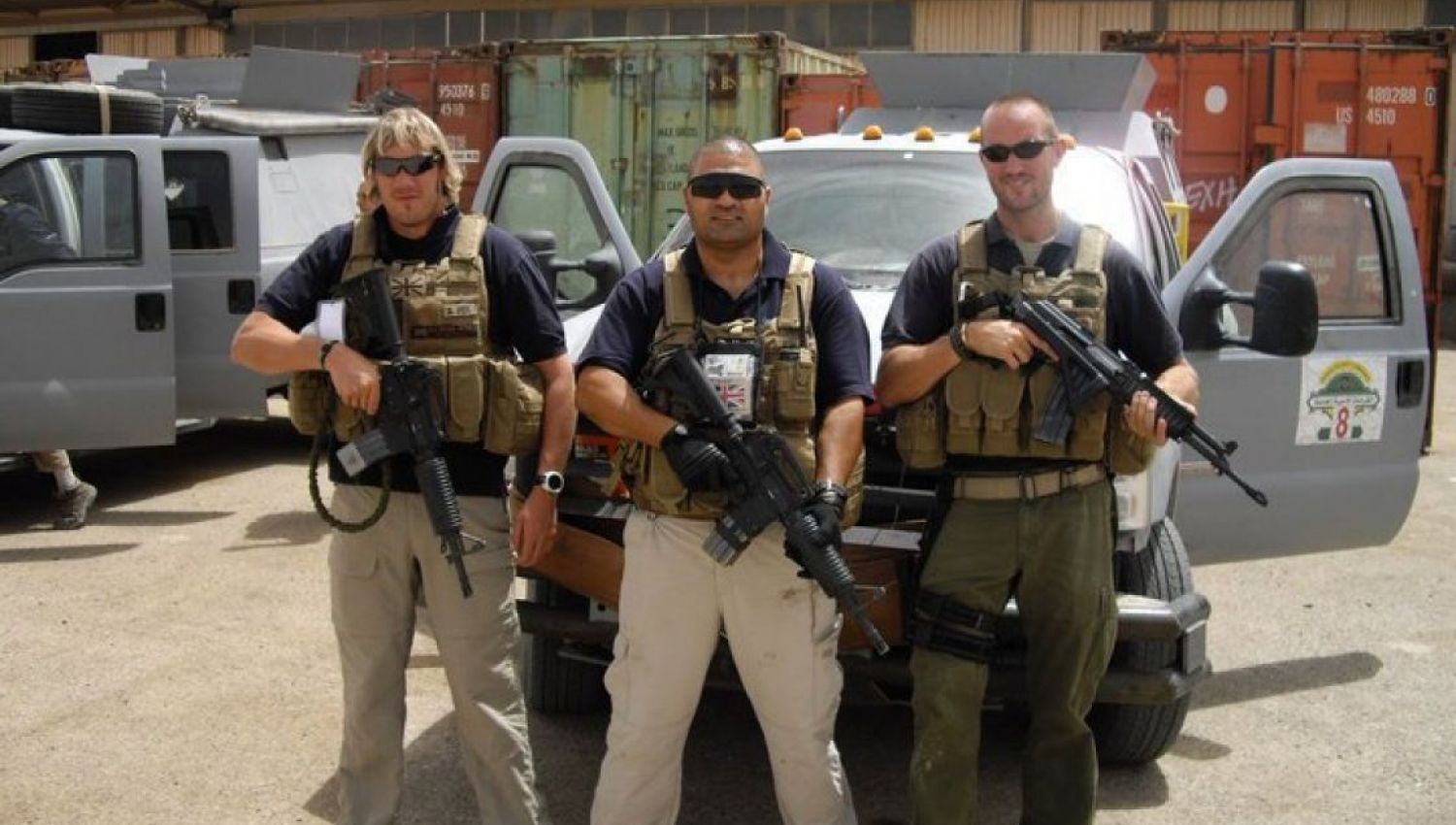
Mercenaries in Netzarim
Twenty-two years after the 2003 attack on a U.S. diplomatic convoy in Gaza, American private security firms are making a return—this time under a ceasefire agreement to inspect Palestinian vehicles traveling between northern and southern Gaza.
Adding to the significance of the development, U.S. presidential envoy Steve Witkoff, appointed by Donald Trump, is set to visit Gaza for the first time as a senior American official. In a January 22 interview with Fox News, he confirmed his plans, stating, “I'm actually going to be going over to Israel. I'm going to be a part of an inspection team at the Netzarim corridor and also in the Philadelphi corridor.”
“That's where you have outside overseers making sure that people are safe and people who are entering are not armed and no one has bad motivations, but we have to make sure that the implementation goes well.”
Reports published by The New York Times and Axios on January 23 revealed that “security contractors”—effectively mercenaries—will oversee the ceasefire's implementation along the Netzarim Corridor.
Under the Gaza ceasefire and prisoner exchange agreement, which began on January 25, displaced residents were allowed to return to northern Gaza on foot without security screenings. U.S. private contractors will conduct security checks on those traveling by vehicle, using electronic scanning systems to ensure, as officials claim, that Palestinian cars are not used to transport weapons.
According to a copy of one of the ceasefire’s annexes shared with The New York Times, these private contractors are set to inspect northbound vehicles starting January 25.
But it was far from clear when the mechanism would be put into effect, and two of the officials said it might take a couple of weeks, as per The New York Times.
The deal states that inspections will be carried out by a private firm designated by mediators in coordination with the Israeli side, following an agreed-upon mechanism.

Hamas confirmed in a statement that “on January 25, 2025—following the completion of the prisoner exchange and Israel’s withdrawal from the Rashid Street corridor—displaced Palestinians will be allowed to return north on foot.”
The Resistance emphasized that movement along Rashid Street will be permitted “without weapons and without inspections,” ensuring free travel between northern and southern Gaza.
Hamas also stated that vehicles of all types will be allowed to return north past the Netzarim Corridor, but only after undergoing security checks. It did not specify which entity would conduct these inspections.
One of the firms assigned to the corridor is Safe Reach Solutions, which conducts logistics and planning, a company spokesperson, who requested anonymity to discuss sensitive operations, told NYT.
Safe Reach Solutions will oversee the operational management of the crossings, said a second person familiar with its operations, while two other firms — one American, one Egyptian — will handle the actual inspections. It is not yet clear who will fund the contractors’ deployment.
The second company is UG Solutions, a private security company in the U.S. that operates armed guards around the world. Some of the guards are Americans who served in U.S. military special forces and others have various foreign nationalities, a source familiar with the issue told Axios.
The third company is an Egyptian security company, which has been approved by the Egyptian intelligence service and that will also deploy security guards to Gaza, a senior Israeli official said.
The Egyptian firm is reportedly affiliated with Ibrahim al-Arjani’s military-linked business conglomerate, forming part of a three-party consortium managing security operations in Gaza.
Representatives from the American security firm arrived in “Israel” on January 23 to conduct security assessments in the Netzarim Corridor, under the pretext of “preventing armed militants from returning to northern Gaza.”
The security firm will deploy around 100 armed personnel, mostly American, with some Arabic speakers. They are described as “veterans of elite military units” or “former CIA operatives.”
It has been reported that the head of mysterious Safe Reach Solutions is Berel Solomon who displays the Israeli flag on his LinkedIn profile.
Solomon visited the Israeli Occupation on January 23, coinciding with the confirmation by Yedioth Ahronoth that representatives from the American security company, which will conduct the security inspections along the Netzarim route, had arrived in “Israel.”
On January 23, Solomon visited “Israel,” coinciding with reports of the U.S. security team's arrival. He shared a video on X in which he stood with the al-Aqsa Mosque behind him, stating that the Jewish Temple would be built there in the future, referring to its construction in place of the al-Aqsa Mosque.
He also wrote “Mashiach,” in which Israeli Prime Minister Benjamin Netanyahu stated that “his time has come to establish the kingdom of God for the Jews.” The Meshiach in Hebrew means the savior or redeemer.
This refers to the “awaited Messiah,” according to the religious doctrine of extremist right-wing Zionist religious groups, who believe he will be the final king from the lineage of David, who will establish God's final kingdom and rebuild the temple in place of al-Aqsa Mosque.
A Seed for Occupation?
Strangely, the website of Safe Reach Solutions—the company overseeing operations at the crossings—offers no information about its activities, funding, or team members. Registered in 2024 and launched in 2025, its online presence remains virtually empty.
The company also appears to have social media accounts on Instagram and Threads, but both are empty of content.
According to Walla, funding for the security firms involved in the inspection plan does not come from “Israel.” Instead, it is managed by the mediators of the ceasefire agreement—Qatar, Egypt, and the United States—who selected these companies. Qatar appears to be the primary financier.
None of the three companies, nor Egypt, Qatar, Hamas, “Israel,” or the United States, have commented on these arrangements.
There is also speculation that additional parties may join the three security firms in the future.
“Israel hopes that the private security contractors [effectively mercenaries] will eventually form the nucleus of a larger international force, backed by Gulf states like Saudi Arabia and the United Arab Emirates, that will run Gaza in the future,” two U.S. officials told The New York Times. “The Emiratis and the Saudis are not currently involved,” they added.
Political analysts in Egypt and Palestine suggest that this mercenary-run security structure could serve as a cover for Emirati, Saudi, and potentially Egyptian control over Gaza in the future.
The experts, interviewed by Al-Estiklal, believe that deploying around 100 American ex-military personnel and intelligence operatives is a step toward establishing a U.S. presence in Gaza under an international guise—potentially as a long-term alternative to the Israeli Occupation.

Will Another Confrontation Erupt?
Former U.S. President Donald Trump may have brokered deals with Arab regimes to implement this plan, particularly as these governments—hostile to Islamist movements—see their hopes of Hamas's defeat fading. The aim would be to prevent Hamas from fully regaining control over Gaza and rebuilding its military strength,” the experts told Al-Estiklal.
They also predict a future clash between Hamas’s military wing, al-Qassam Brigades, and the American mercenaries operating under these security firms if they exceed their agreed-upon role in the ceasefire arrangement. Such a confrontation could arise if they remain beyond the second and third phases of the deal or use delays in its implementation as a pretext to stay.
Following the ceasefire, Hamas reasserted its presence by sending fighters to parade through Gaza’s streets in a show of strength.
Images of these demonstrations dashed Israeli hopes of dismantling the Resistance despite 15 months of war that have left over 45,000 innocent people dead, according to Gaza health officials.
For years, “Israel” has explored various plans to deploy American private contractors in Gaza under the guise of securing aid shipments or establishing "humanitarian zones" cleared of Hamas-resistant fighters. However, Hamas has firmly rejected these proposals and vowed resistance.
“None of those plans has ever come to fruition, but the contractor-manned checkpoint could be a key test of the viability of deploying private contractors in Gaza,” as per CNN.
Under the ceasefire agreement, these contracting firms have no offensive mandate, no military role, and no authority to detain resistance fighters.
However, company officials told The Washington Post they are concerned about potential provocations or attacks, given the widespread perception that the U.S. is Israeli Occupation’s primary military supplier and diplomatic backer in its war on Gaza.
Security firm representatives confirmed they would position additional forces nearby in case of unrest.
While the Israeli military is not expected to intervene directly, company officials noted that Israeli forces will never be far from Gaza’s borders—a veiled indication of potential military support if needed.
White House National Security Advisor Michael Waltz reinforced this stance on CBS’s Face the Nation on January 19, stating, “If Hamas reneges on this deal, if Hamas backs out, moves the goalposts, what have you, we will support Israel in doing what it has to do, number one, and, number two, Hamas will never govern Gaza.”
Sources
- U.S. private military contractors to secure internal checkpoint in Gaza
- U.S. Security Contractors Going to Gaza to Oversee Truce, Officials Say
- US security contractor will take charge of key checkpoint in Gaza as Israeli forces withdraw
- U.S. private security contractors will operate key Gaza checkpoint
- Trump envoy says Gaza ceasefire could pave way for Mideast normalization deal: 'Inflection point'
- Full transcript of "Face the Nation with Margaret Brennan," Jan. 19, 2025
- Gaza internal checkpoint to be staffed by US private armed contractors


